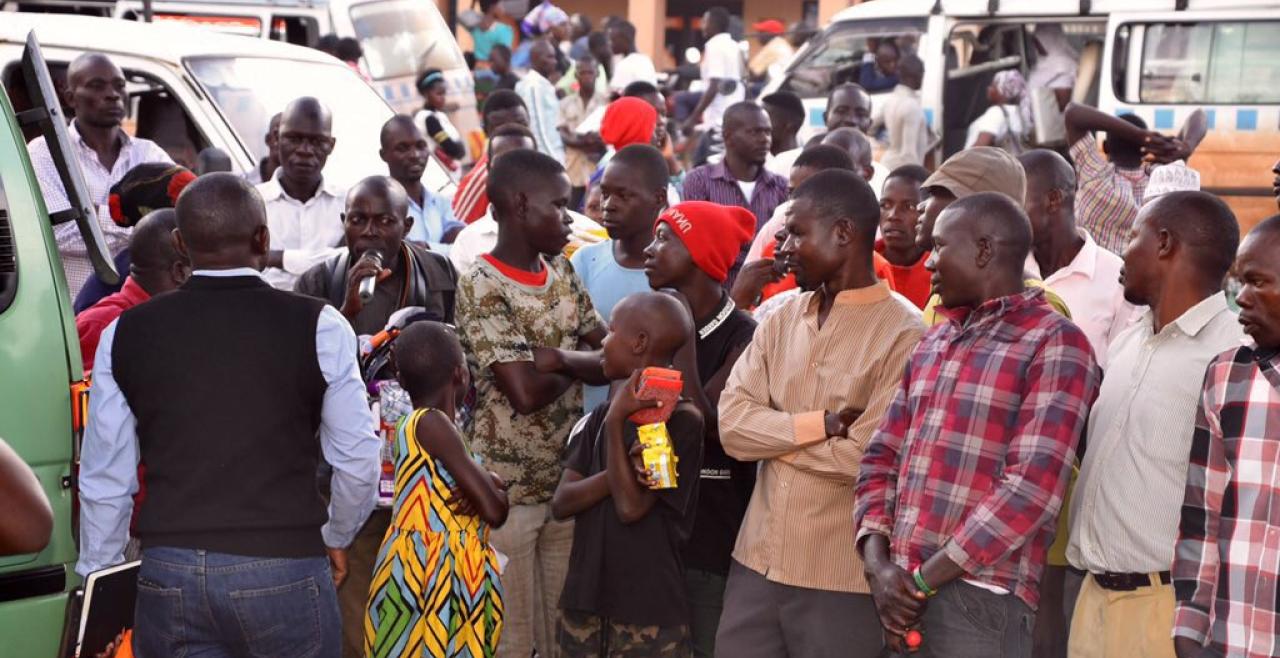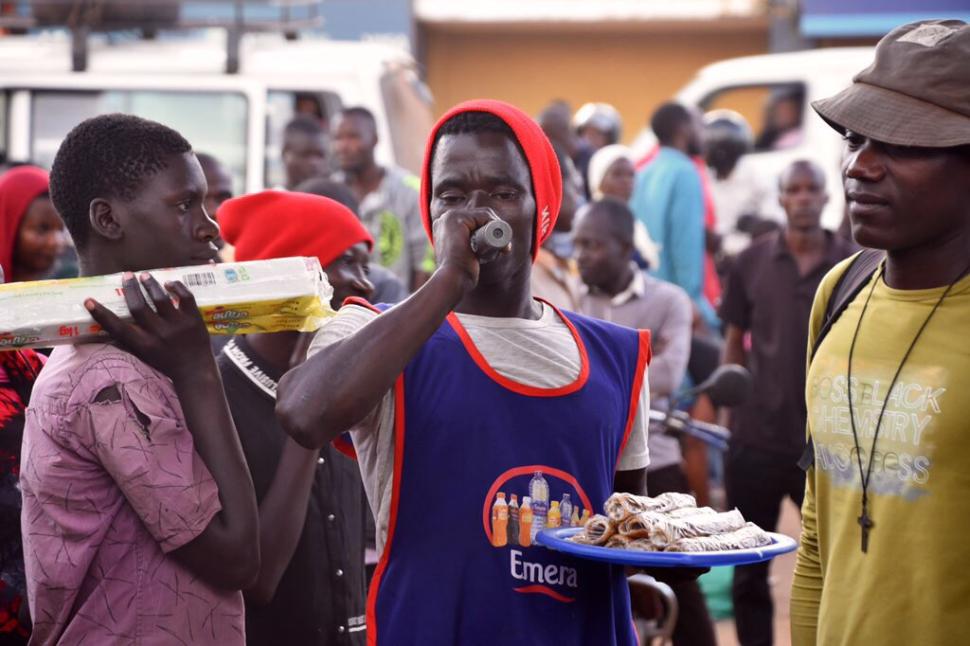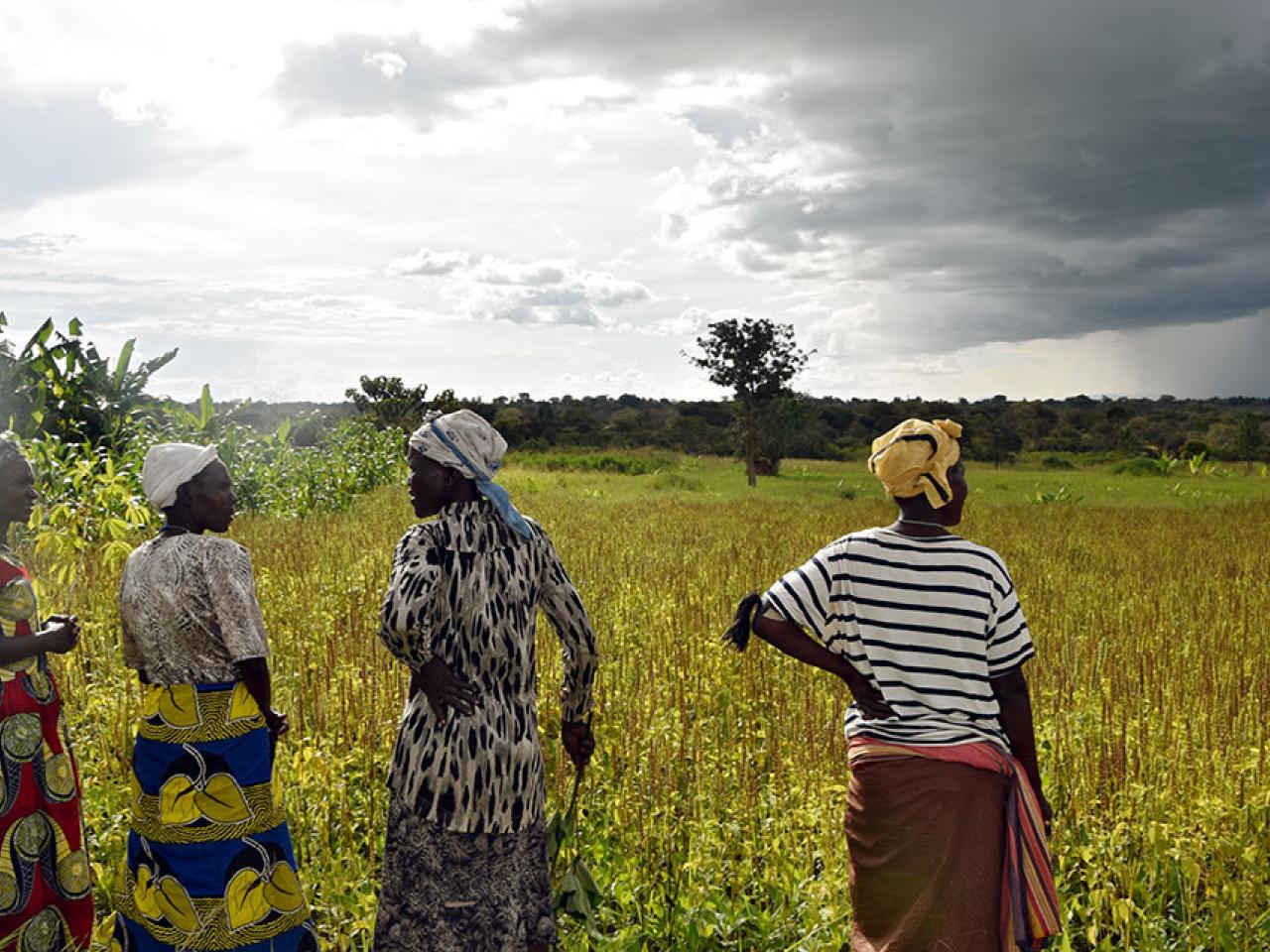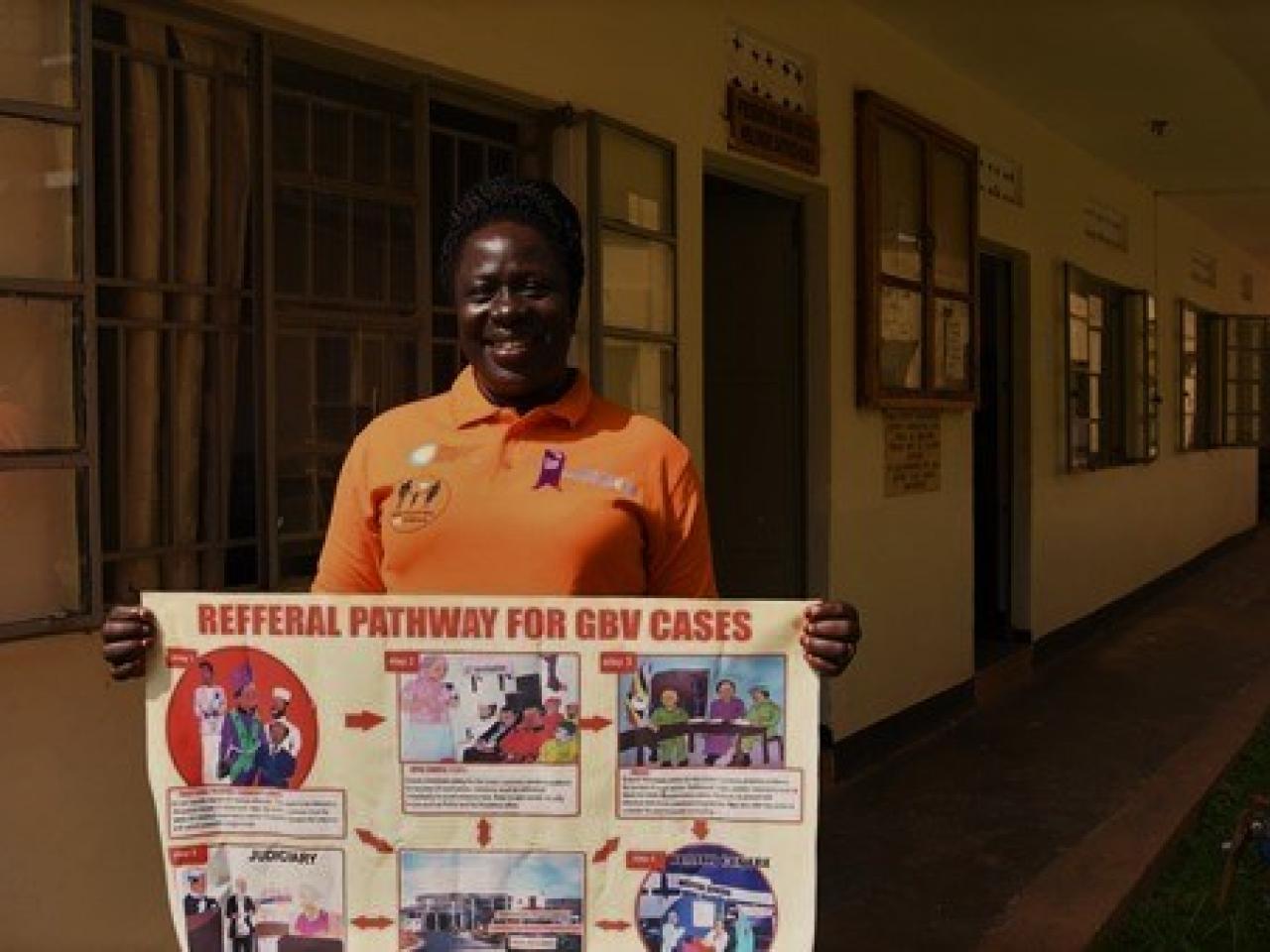How male champions are helping to end gender-based violence in Uganda

KITGUM DISTRICT, Uganda – “As a male champion, I strive for gender inclusiveness and making gender parity a priority,” says local government Community Development Officer, Wilfred Nyeko. “Being a male champion means reporting forms of abuse, acting as a source of change and inspiration for men, and being a role model for mindset change. It also means advocating for the rights of women and girls, and working to increase their visibility in society.”
86 per cent of women have access to land, but under customary land tenure systems, these legal rights are often not recognized in communities.
Mr. Nyeko is one of 15 men in Kitgum District who participated in Spotlight Initiative-supported training sessions in 2019 and 2020 on gender equality, women’s rights and ending gender-based violence conducted by UN Women partner, LandNet Uganda.
“In Uganda, there is gender bias in education, gender disparities in agriculture, the gender pay gap, lack of representation for women and girls at policy level, and high incidences of sexual harassment,” explains Mr. Nyeko. “As a male champion I use my authority in the community to create a more inclusive culture and promote reduction of violence within my society.”
During training sessions, Wilfred and other male champions learned about the role of women’s rights in reducing gender-based violence; the importance of family planning services for women and how to encourage men to explore those services with their wives; positive parenting techniques that promote gender equality; and safe sexual behaviours that promote women’s bodily autonomy and agency. The champions were equipped with the skills to act as role models and change agents for other men in their communities, and there are reduced incidences of conflicts in those districts targeted by the trainings.
HOW LAND DIVIDES
There are clear links between women’s land rights and access and gender-based violence in Uganda. In Kitgum District, 63 per cent of women own land and 86 per cent of women have access to land, but under customary land tenure systems, these legal rights are often not recognized in communities where men dominate decision-making, and women are excluded from meaningfully participating in governance systems.
“Generally, women must wait for their husbands to make decisions over land management and access, leaving many rural women underemployed and without any control over productive resources and services,” notes Evelyn Letiyo, Programme Specialist (EVAWG), UN Women Uganda. “Which means that in cases of domestic violence, women often feel they have no option but to stay in violent households as they have no way to support themselves or their children.”
Furthermore, approximately 50 per cent of people in Northern Uganda have experienced land conflicts – the majority being women and widows – and 72 per cent of these conflicts are within households, family and clan. Often, these conflicts over land can lead to economic and physical violence against women and girls.
In addition to training male champions to advocate for gender equality in their communities, LandNet Uganda conducted sensitization meetings and forums with 2,206 community members to raise awareness about women’s rights in relation to access to land, increase the level of women’s participation in decision-making and governance, and help women understand what services are available to them if they experience violence.
Access to land for production by women has greatly improved... [and] incidences of gender-based violence are now being reported and handled by police and authorities.” - Wilfred Nyeko, LandNet Uganda
“Since the community meetings, 25 women now participate in decision-making over land rights and use, there have been more reports by women about land issues to the appropriate authorities. Access to land for production by women has greatly improved,” enthuses Mr. Nyeko.
“Importantly, incidences of gender-based violence are now being reported and handled by police and authorities. The counselling and mediation skills we learned as champions have helped us handle land conflicts and reports of violence much better than before. Ultimately, I want men to know that we should co-exist peacefully with women in our society.”
By Eva Sibanda



